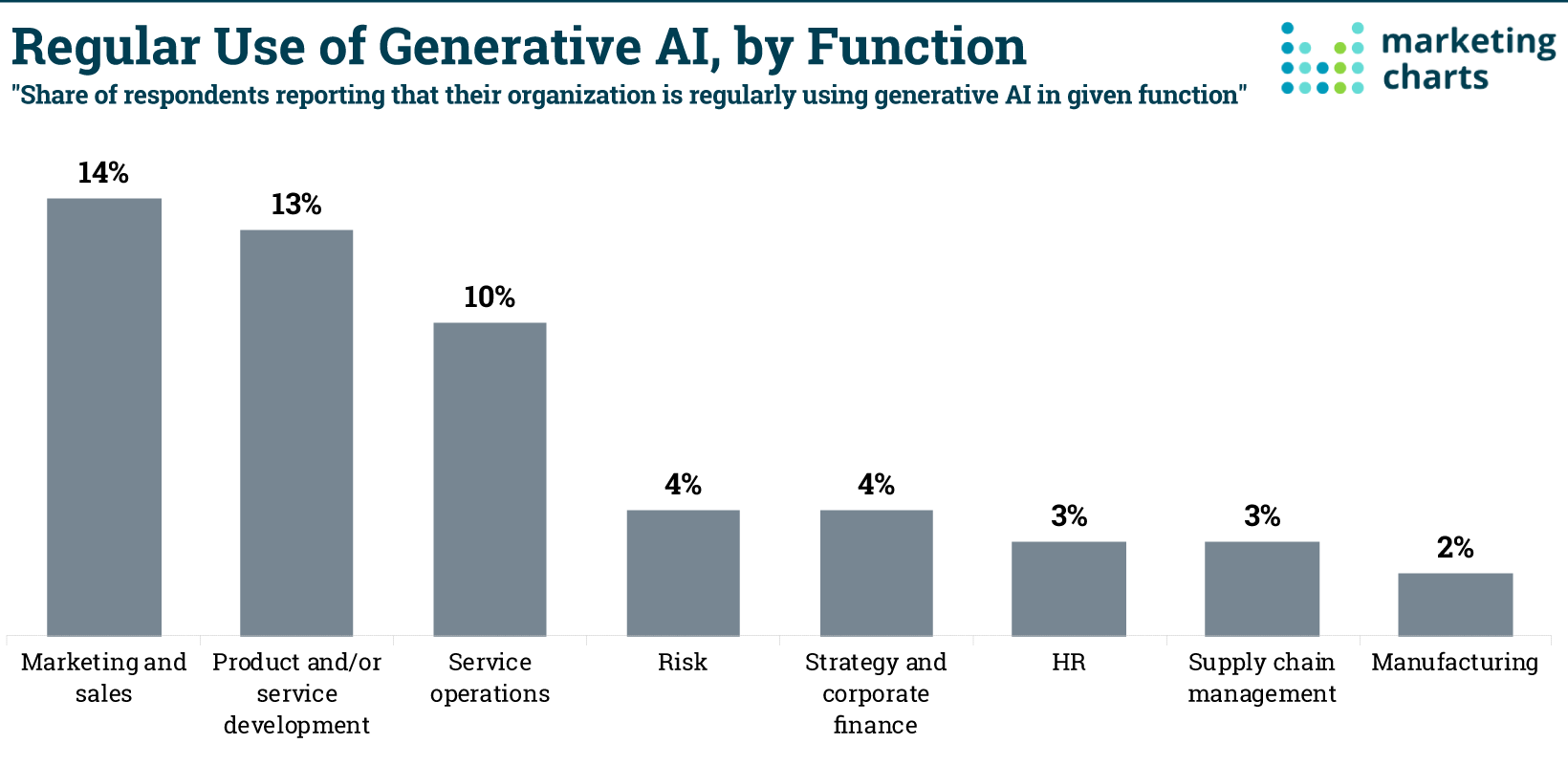According to the 2023 McKinsey Global Survey and the Quantum Black study, generative AI is poised to become a mainstream technology used across organizations in 2023. Generative AI refers to AI systems that can generate new content, such as text, code, images, or video, based on an initial text or multimedia prompt.
The McKinsey survey of nearly 3,000 executives worldwide found that 52% of respondents already adopt some form of generative AI, with an additional 38% planning to adopt it within the next year. The Quantum Black study provided further insights into which roles are leading the adoption.
Marketing and Communications
Marketing and communications teams were early pioneers in testing applications of generative AI. Over two-thirds of survey respondents from marketing functions reported using generative AI, with applications ranging from written content creation to visual asset design. Key benefits include increased efficiency and productivity, as well as the ability to rapidly customize content.
Technical and Engineering Roles
Developers, engineers, and IT professionals also reported significant usage of generative AI, at 64% of survey respondents. Key applications include using natural language prompts to generate code, automating software documentation, and assisting with debugging. Generative AI delivers major time savings and frees up developers to focus on higher-value strategic tasks.
Customer Service and Sales
Generative AI is assisting 57% of customer service professionals as an AI-powered chatbot handling routine inquiries. It’s also supporting sales teams in 50% of organizations surveyed, by generating content and insights to assist with proposals and presentations. Key advantages include scalability, consistency, and rapid response times.
Finance and Accounting
In finance, generative AI helps analysts and accountants produce reports, projections, and financial models using simple prompts in natural language. In the survey, 47% of finance professionals reported using generative AI to improve efficiency and accuracy.
Legal
The legal profession is starting to adopt generative AI as well, with 45% of respondents reporting usage. Key applications are document and contract review and generation, legal research, and summarizing case files. Top benefits include speed, cost, and risk mitigation.
Human Resources
HR teams are using generative AI for 39% of survey respondents, especially for talent acquisition. Applications range from generating job descriptions to conducting initial resume screens. Generative AI delivers significant time and cost savings in high-volume HR tasks.
The McKinsey survey makes it clear that generative AI adoption is accelerating across the enterprise. As organizations incorporate this potentially transformative technology, they’ll need to manage risks around data privacy, security, bias, and misinformation (aka hallucinations). But when used responsibly, generative AI can automate repetitive tasks, drive efficiencies, and allow all of us to focus on more strategic and creative work.
About the Data: The results are based on an April survey of 1,684 respondents “representing the full range of regions, industries, company sizes, functional specialties, and tenures. Of those respondents, 913 said their organizations had adopted AI in at least one function.” Check out the full survey.
Need assistance using AI to enhance and expedite your marketing initiatives? Schedule a call or email Lori Berson at lberson@BersonDeanStevens.com.
BersonDeanStevens has been a recognized brand strategy and marketing leader for over 25 years. We work in partnership with you to differentiate your brand and achieve your business goals. Client list.

